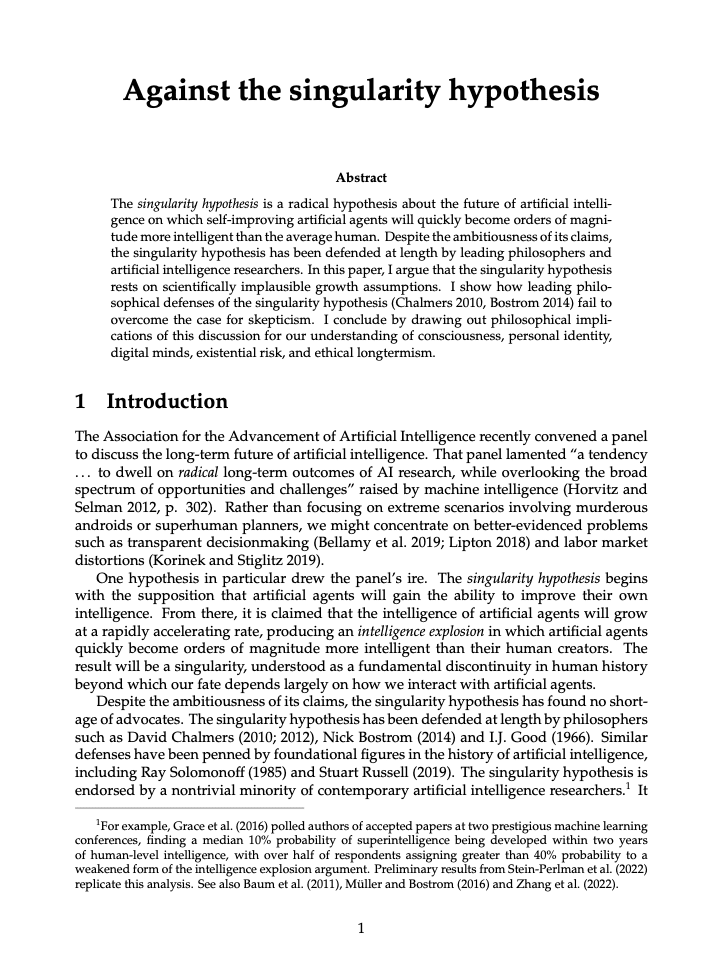Against the singularity hypothesis
David Thorstad (Global Priorities Institute, University of Oxford)
GPI Working Paper No. 19-2022; published in Philosophical Studies
The singularity hypothesis is a radical hypothesis about the future of artificial intelligence on which self-improving artificial agents will quickly become orders of magnitude more intelligent than the average human. Despite the ambitiousness of its claims, the singularity hypothesis has been defended at length by leading philosophers and artificial intelligence researchers. In this paper, I argue that the singularity hypothesis rests on scientifically implausible growth assumptions. I show how leading philosophical defenses of the singularity hypothesis (Chalmers 2010, Bostrom 2014) fail to overcome the case for skepticism. I conclude by drawing out philosophical implications of this discussion for our understanding of consciousness, personal identity, digital minds, existential risk, and ethical longtermism.
Other working papers
Altruism in governance: Insights from randomized training – Sultan Mehmood, (New Economic School), Shaheen Naseer (Lahore School of Economics) and Daniel L. Chen (Toulouse School of Economics)
Randomizing different schools of thought in training altruism finds that training junior deputy ministers in the utility of empathy renders at least a 0.4 standard deviation increase in altruism. Treated ministers increased their perspective-taking: blood donations doubled, but only when blood banks requested their exact blood type. Perspective-taking in strategic dilemmas improved. Field measures such as orphanage visits and volunteering in impoverished schools also increased, as did their test scores in teamwork assessments…
Estimating long-term treatment effects without long-term outcome data – David Rhys Bernard (Rethink Priorities), Jojo Lee and Victor Yaneng Wang (Global Priorities Institute, University of Oxford)
The surrogate index method allows policymakers to estimate long-run treatment effects before long-run outcomes are observable. We meta-analyse this approach over nine long-run RCTs in development economics, comparing surrogate estimates to estimates from actual long-run RCT outcomes. We introduce the M-lasso algorithm for constructing the surrogate approach’s first-stage predictive model and compare its performance with other surrogate estimation methods. …
Longtermism, aggregation, and catastrophic risk – Emma J. Curran (University of Cambridge)
Advocates of longtermism point out that interventions which focus on improving the prospects of people in the very far future will, in expectation, bring about a significant amount of good. Indeed, in expectation, such long-term interventions bring about far more good than their short-term counterparts. As such, longtermists claim we have compelling moral reason to prefer long-term interventions. …

